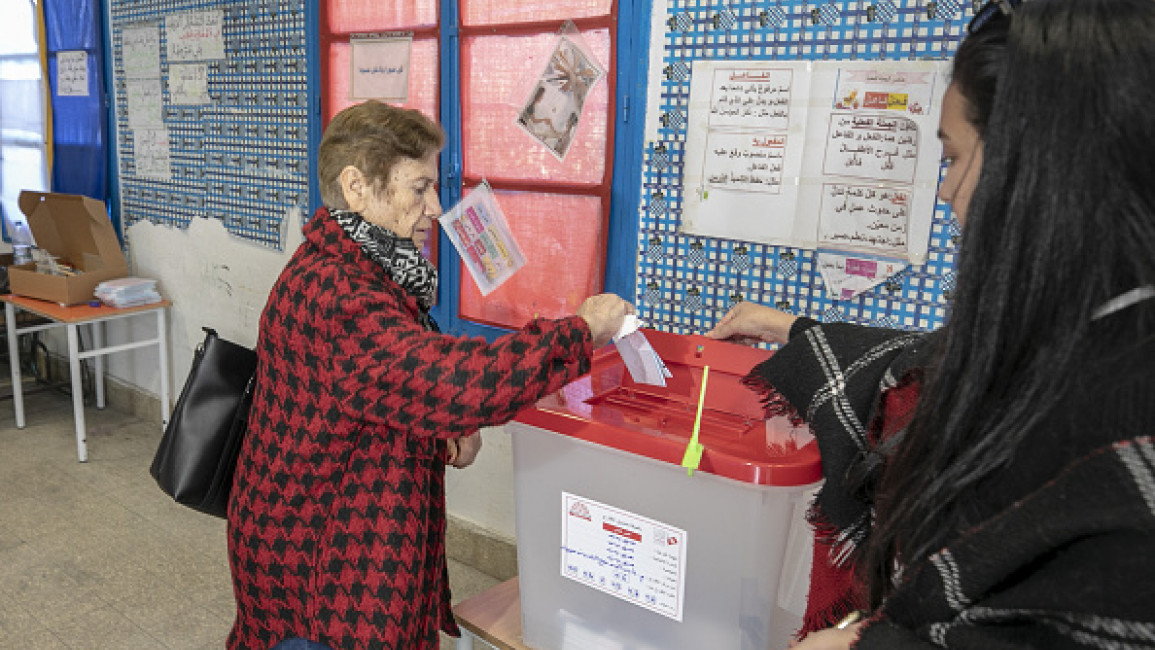Low turnout of 11.3% as Tunisians vote on toothless parliament
Just 11.3 percent of Tunisians voted Sunday in a second-round poll for a toothless parliament, according to initial figures announced by the electoral board, as the politically divided nation grapples with economic woes.
Speaking after voting stations closed at 6:00 pm (1700 GMT), electoral board chief Farouk Bouasker said 887,638 out of more than 7.8 million registered voters had taken part in the poll, which followed a widely boycotted first round in December.
The low turnout marks a blow to President Kais Saied, who has stripped the legislature of its powers and granted himself far-reaching authority since his dramatic 2021 power grab in the birthplace of the Arab Spring uprisings.
On July 25, 2021, Saied sacked the government and froze parliament before dissolving it and pushing through a new constitution- granting him almost unlimited powers and sweeping away the system that had emerged from the 2011 revolt.
The latest poll was seen as the final pillar of Saied's transformation of politics, ushering in a new legislature that will have almost no authority to hold the president or government to account.
"There's no way I'm voting," said Mohamed Abidi, 51, a waiter at a cafe in Tunis.
"Saied isn't listening to anyone to find solutions for our situation. The whole economy is suffering but he's not interested - he only wants to keep his place in the presidential palace".
But in the southwestern town of Kasserine, voter Mokhtar Hermasi said he was doing his "electoral duty" despite a "bland campaign".
The head of the polling station where he voted said numbers had picked up throughout the day, noting that many of those casting ballots were older.
According to the electoral board's initial figures, just five percent of those who voted were aged under 26, while more than two-thirds were men.
In Gafsa, a two-hour drive further south, Mohamed Tlijani and Ali Krimi said they had both cast ballots for Tlijani's cousin.
"The electoral process has become exhausting but we want him to win, we have the right to have a representative in parliament," Krimi said.
Analysts had predicted few voters would participate in the second round, as major parties including Saied's arch-rivals, the Islamist-inspired Ennahdha, urged another boycott.
Youssef Cherif, director of Columbia Global Centers in Tunis, said before Sunday's poll that "this parliament will have very little legitimacy, and the president, who is all-powerful thanks to the 2022 constitution, will be able to control it as he sees fit".
With inflation at over 10 percent and repeated shortages of basic household goods, the North African country's 12 million people have been focused on more immediate issues.
Ratings agency Moody's downgraded Tunisia's credit score on Saturday to Caa2, citing "the absence of comprehensive financing to date to meet the government's large funding needs".
The cash-strapped country is struggling under debt worth around 80 percent of its gross domestic product.
Omrane Dhouib, 37, an apprentice baker in the capital, said he was struggling to make ends meet and had no faith in the country's political elite.
"Saied had the chance to make radical changes. He seized all powers but he did nothing," he said.
But taxi driver Belhassen Ben Safta, 60, was determined to vote to prevent a return to the previous, Ennahdha-dominated system.
"We've got to vote! We can't leave even the slightest possibility that the old system returns".
More than 32,000 Tunisians are estimated to have made irregular bids to reach Europe over the past year, as poverty and unemployment rise.
The election takes place in the shadow of drawn-out negotiations with the International Monetary Fund for a bailout worth nearly $2 billion.
Cherif said the talks were stumbling over concerns held by the United States for the future of Tunisian democracy and Saied's apparent reluctance to "accept the IMF's diktats" on politically sensitive issues, including subsidy reform.


![President Pezeshkian has denounced Israel's attacks on Lebanon [Getty]](/sites/default/files/styles/image_684x385/public/2173482924.jpeg?h=a5f2f23a&itok=q3evVtko)



 Follow the Middle East's top stories in English at The New Arab on Google News
Follow the Middle East's top stories in English at The New Arab on Google News


